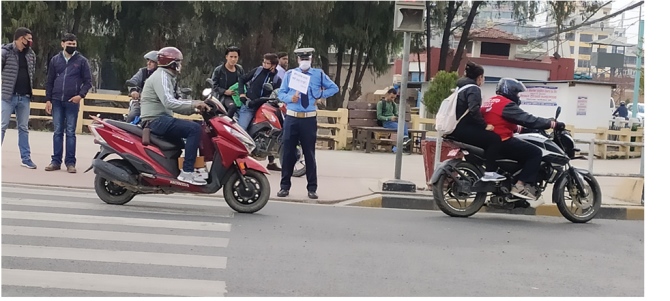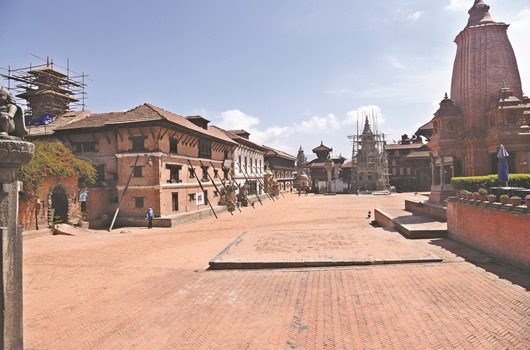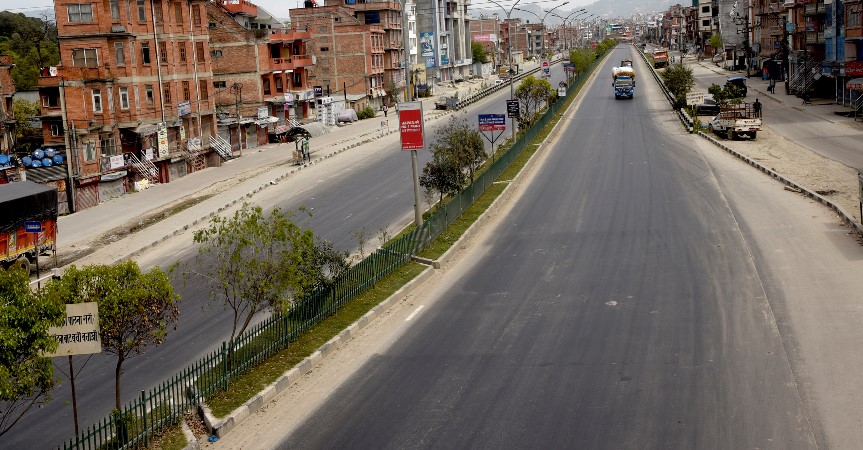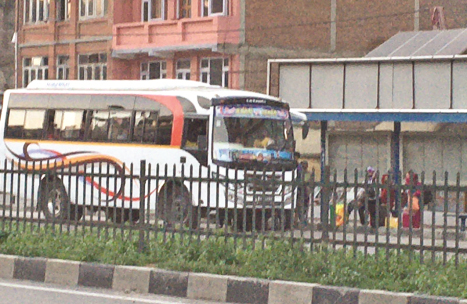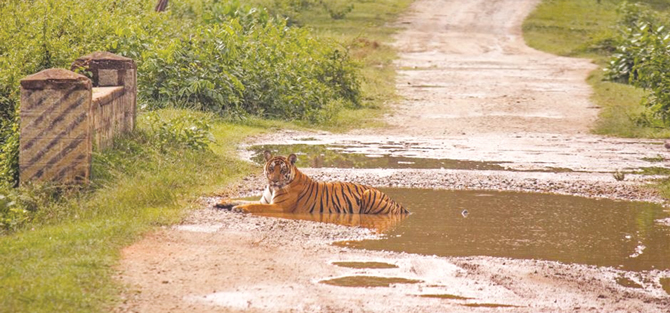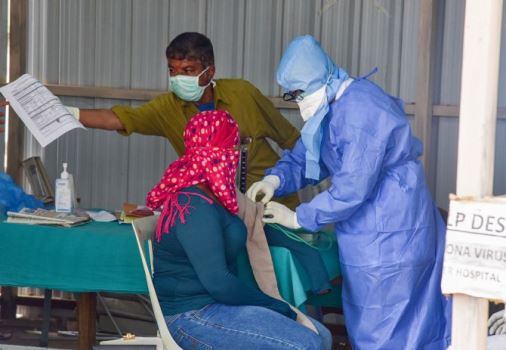Bhaktapur locals find the New Year dull in absence of jatras
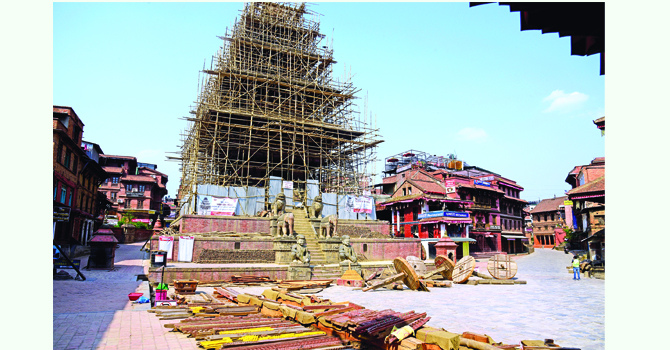
By Indira Aryal
Bhaktapur, Apr. 14: The New Year this time was different for local Newar community in Bhaktpur district. It was just like an ordinary day. The New Year festival was cancelled amid the fear of global pandemic COVID-19. Moreover, there has been a nationwide lockdown in place, and the New Year day fell on the 21st day of lockdown.
For senior citizens, the silence in the streets during the New Year jatra times was their first such experience in their life time. They had been celebrating this tradition since their childhood but this year they were confined to their homes.
For Ful Maya Kapali, 75, of Bappamahadev-4 in Madhyapur Thimi Municipality, this was the worst New Year in her life. “I don’t know what is happening now, all I know is we could not celebrate the festival. I don’t remember skipping the festival since my childhood,” Kapali said. This jatra is a kind of Dashain for us as we could eat bhoj like in Dashain during the jatra,” she said.
“Where to go, I feel bored staying at home the whole day, my family members do not allow me even to go to the temple early in the morning.”
Every year thousands of people gather to visit core cities of Bhaktapur district to celebrate Bisket Jatra, an annual event for the Newar community of this district. Thousands of visitors reach come out to enjoy the cultural display and pay homage to gods.
In Madhyapur, the festival starts from the New Year’s Eve of Nepali calendar Chaitra 30, and the most popular jatra is celebrated on the second day of the New Year popularly known as Sindoor Jatra in which the people use vermillion powder and gather from various parts of Madhyapur Thimi, carrying their own chariots at Layeku Thimi.
Most of the locals in the area participate in the jatra where locally brewed rice beer and alcohol are taken in the name of the gods, while women are seen in the temples and busy preparing Newari feast (a traditional party within family members).
Although the jatra is cancelled this year, the women are busy preparing for the feasts. The work load for Nani Chhori Kapali had not been reduced. She had to make all the traditional food for bhoj from early in the morning.
“It is not that I don’t have to make traditional meal, the only thing is that there is no crowd and no music here. Except that we follow all our cultural rituals,” Nani Chhori informed.
People were seen flocking around the temples early in the morning in the Balkurmari temple. The locals stressed the need for protecting their cultural values even in the times of crisis.
Ram Bhasema of Madhyapur Thimi-5 said that they had to follow the culture even through the government asked them to maintain social distancing.
“I went to Balkumari temple early in the morning to worship the god, and we had bhoj at our house. The local government has asked us not to leave homes, but it has not prohibited the bhoj,” he said.
Still the annual festival is not same and enjoyable to everyone. For Chandra Maya Chakradhar, 65, it is better to stay at home in peace rather than to hear the noise from early in the morning. She said, “I have been observing the festival since my childhood, but this year it was nice to feel the quietness.”
“I don’t enjoy the crowd and noise, but I had to pretend that I love the festival. I don’t feel any bad about the lockdown and cancellation of the festival,” Chakradhar said.
For Roshan Shakya, 45, this festival is for to release all the pain of the year at a single time and to enjoy life. In the previous years, he used to brew home-made alcohol for this festival. Unfortunately, this year he could not do anything. “Staying at home the whole day is like killing my time as I have to harvest vegetables and sell them to the local market,” Shakya said.
People from different parts of the valley used to gather to observe the jatra around Bhaktapur. Male members from various quarters of Thimi and from surrounding villages in Bhaktapur used to bring out the procession of 32 chariots called Khats with images of different deities.
After finishing all the traditional rituals, later the crowd used to witness the tongue piercing festival at the end of the day. This year all such public events are stopped but the locals continue to have the bhoj.
There is no exact date when the jatra started but it is said that it is related to the King of Malla Dynasty, Jagajyoti Malla.
Recent News

Do not make expressions casting dout on election: EC
14 Apr, 2022
CM Bhatta says may New Year 2079 BS inspire positive thinking
14 Apr, 2022
Three new cases, 44 recoveries in 24 hours
14 Apr, 2022
689 climbers of 84 teams so far acquire permits for climbing various peaks this spring season
14 Apr, 2022
How the rising cost of living crisis is impacting Nepal
14 Apr, 2022
US military confirms an interstellar meteor collided with Earth
14 Apr, 2022
Valneva Covid vaccine approved for use in UK
14 Apr, 2022
Chair Prachanda highlights need of unity among Maoist, Communist forces
14 Apr, 2022
Ranbir Kapoor and Alia Bhatt: Bollywood toasts star couple on wedding
14 Apr, 2022
President Bhandari confers decorations (Photo Feature)
14 Apr, 2022


